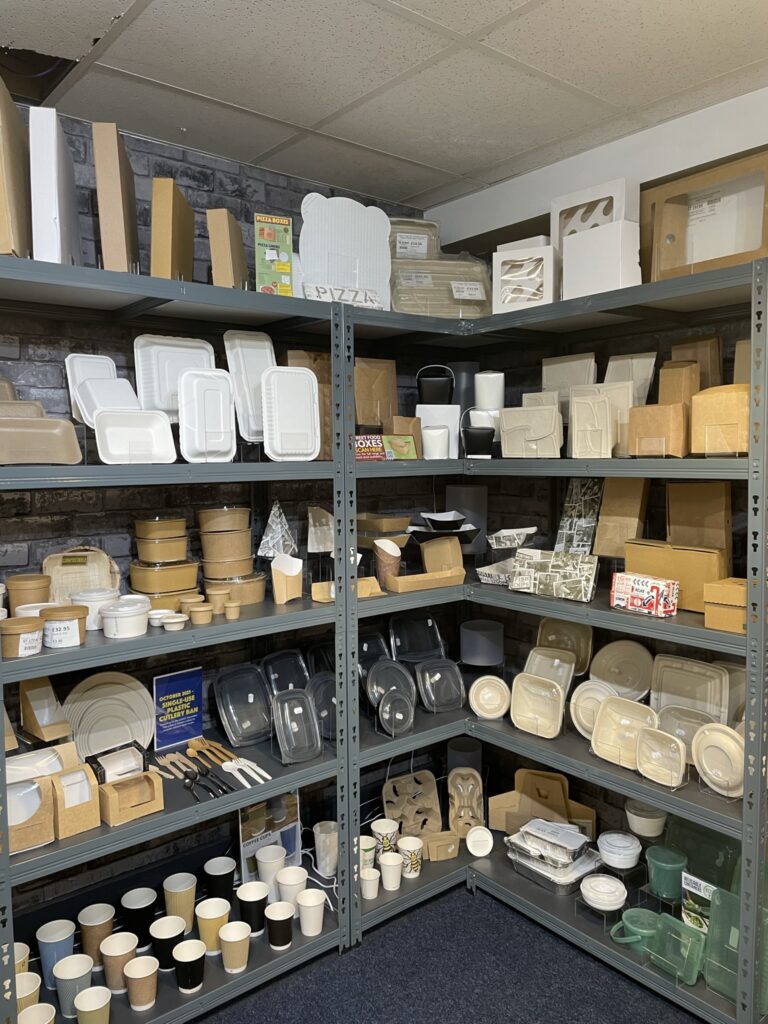In a monumental step towards environmental sustainability, the UK has officially said goodbye to many single-use plastics as of October 2023. The ban, which encompasses a wide array of items, from plates to cutlery, has been met with enthusiasm and readiness across businesses and venues in the UK. This move follows in the footsteps of Scotland and Northern Ireland, where the ban has been in effect since 2022.
As the UK takes this decisive step towards a plastic-free future, businesses and consumers alike are poised to make a lasting impact on the environment. Stephensons is committed to assisting businesses move away from single-use plastic, and helping the planet by reducing this type of waste.
Plastic plates, cutlery, single-use bowls, trays, and certain types of polystyrene cups and food containers sold by retailers, takeaways, or food vendors are all now subject to the ban. However, it’s important to note that the ban doesn’t apply to plates, trays, and bowls used as packaging for “shelf-ready pre-packaged food items.” Local authorities will carry out inspections to make sure the rules are being followed and complaints about a business breaking the law can be made to Trading Standards. If you continue to supply banned single-use plastics, you could be fined and inspectors can order your business to cover the cost of the investigation.

Numerous readily available alternatives, such as recyclable, compostable, and—better still—reusable options, exist to replace single-use plastics. Some customers are confused about which products are involved in the change or are concerned about the cost implications. Stephensons can help advise customers and are confident that the costs in the long term won’t be an issue. They actively support businesses in adapting to the new ban by providing assistance and sustainable alternatives.
Henry Stephenson from Stephenson’s Catering Equipment believes that the businesses they work with and their customers are well-prepared for this transition. He notes, “There has been quite a lot of pressure for our customers to use reusable products or single-use alternatives made out of eco-friendly materials like paper.”
The legislation extends to online and over-the-counter sales, applying to items from both new and existing stock. The scope of the ban underscores a commitment to a comprehensive reduction in plastic usage.
Henry Stephenson raises concerns about the potential ‘grey areas’ where retailers might attempt to circumvent the ban. He notes, “Polystyrene is banned outright for takeaways, but if you are selling any raw meat in a butchers, the tray is still a legal product to sell.” The effectiveness of the ban may hinge on addressing such loopholes and ensuring airtight regulations.
The ban comes as a response to alarming figures indicating that England alone uses approximately 1.1 billion single-use plates and 4.25 billion pieces of cutlery each year. Shockingly, only 10% of these items are recycled after use. Plastic items, especially those associated with takeaway food and drink, contribute significantly to the global litter crisis, making up the largest share of ocean pollution.
The ban not only signifies a commitment to reducing plastic waste but also encourages innovation in sustainable practices. It’s a collective effort that holds the promise of cleaner oceans, reduced landfill waste, and a healthier planet for generations to come. The waves of change have arrived, and the UK is riding them with a sense of responsibility and optimism.
For more information about Stephenson’s. Stephenson’s are committed to helping businesses become more sustainable and making easy transitions which are in line with the new plastic ban, they have a brochure with more information here.